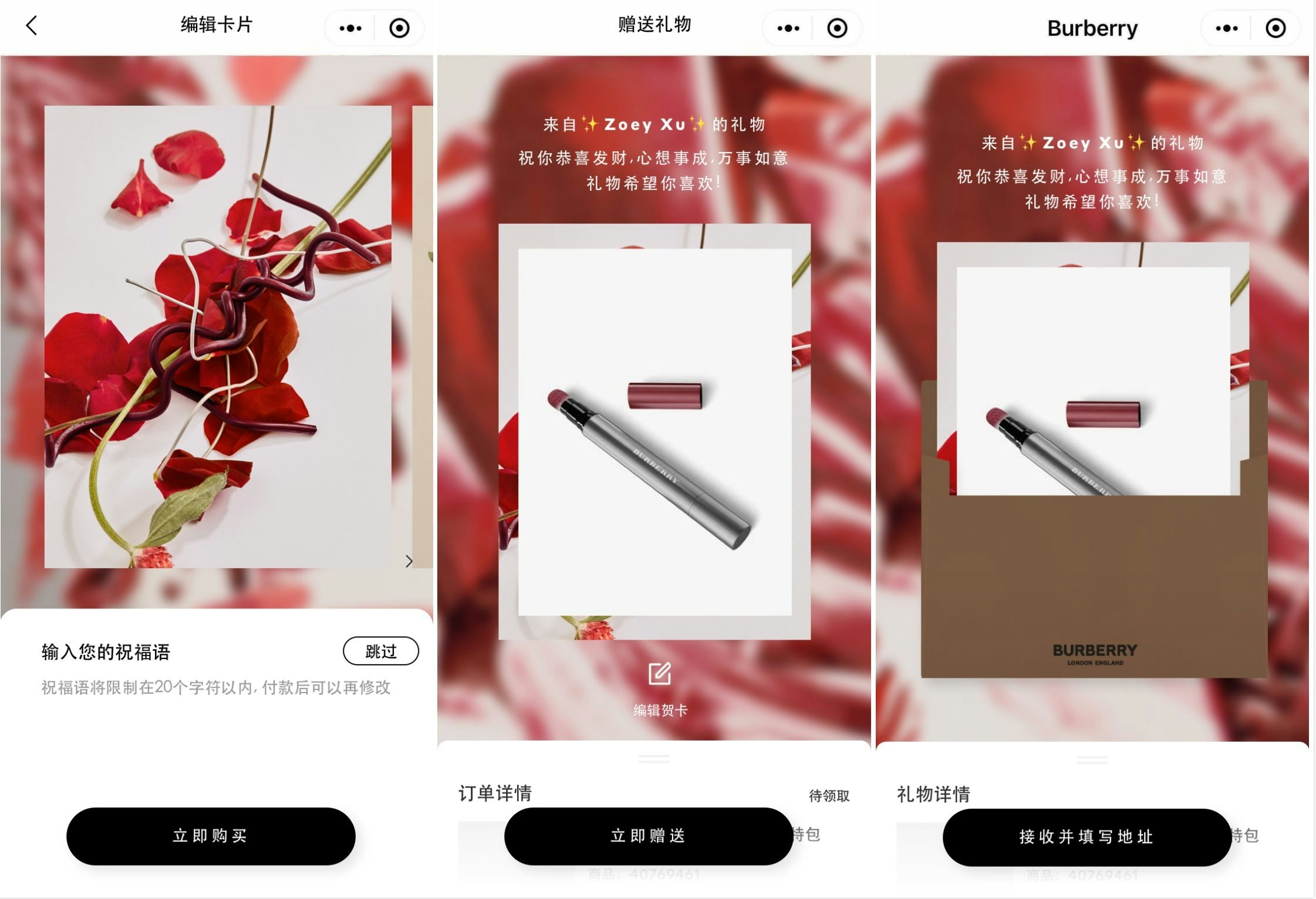In the West, May 20th might be just another day, but in China, 520 marks the country's unofficial second Valentine’s Day. The day was originally created by China’s loved-up millennials — for whom one Love Day wasn’t enough — and who determined that the numbers “520” (pronounced wǔ èr yī in Chinese), sounded similar to the phrase for “I love you” (said wǒ ài nǐ). Whatever the reason for its inception, for luxury brands targeting the Chinese market, 520 is an opportunity for a second shot at tempting shoppers with love-led campaigns.
Today, British fashion giant Burberry is leading the pack with the launch of its 520 WeChat Mini Program, providing an exciting and engaging digital social commerce experience to appeal to luxury consumers in China. The program enables customers to buy gifts for their friends and family, write a personal Love Day note, and send it to them — all within the parameters of WeChat’s Mini Program platform. The recipient then receives the personal Love Day message displaying the gift, and is asked to insert their address and details for the package to be delivered. This personalized experience gives users the opportunity to send any Burberry gift to any recipient, whilst only needing their WeChat username.
“Our latest WeChat Mini Program is a great example of how we continue to excite our consumers through digital innovation and help them celebrate meaningful moments,” says Josie Zhang, Vice President of Burberry in China. “For 520 Love Day, we are giving our Chinese customers the opportunity to mark the occasion with a bespoke social commerce gifting experience from Burberry, all in WeChat. Receiving a personal note with an unexpected gift from someone special is such a wonderful treat and we are delighted to offer this exclusively to our Chinese customers.”

Burberry’s first venture into the world of WeChat came in August 2018, in honor of Chinese Valentine’s Day — or Qixi — that falls on the seventh day of the seventh month in the lunar calendar. The Mini Program encouraged followers to participate in a game with their partners, based on discovering different types of relationships. Completing the game gave the user access to shop Burberry’s latest collection, including two new Qixi bags exclusive to China.
However, Burberry’s successful foray into WeChat advertising was somewhat soured by the release of their Chinese New Year WeChat campaign in January of this year. Burberry was accused of not understanding the importance of Chinese Lunar New Year, after receiving online backlash over its “creepy” family portraits. The brand later quietly removed the controversial images from its WeChat campaign.
So, will the fashion giant's latest attempt be enough for Chinese consumers to fall back in love with Burberry? It seems possible — but by no means certain. China’s online netizens have been resilient in the past, vowing to boycott brands like Dolce & Gabbana, who have been accused of disrespecting and trivializing China’s centuries-old culture.
Next Thursday, May 16th, sees the release of Burberry’s preliminary earnings for the last quarter, and all eyes will be on the brand to see if the Lunar New Year blunder has had an effect on sales. In its previous earnings release on January 23, Burberry noted that its sales were boosted by the increased frequency of product drops and social media campaigns. The company added a total of one million new followers in the quarter across Instagram and WeChat. In particular, Burberry saw a 50-percent increase in reach on WeChat. Things are looking up.

